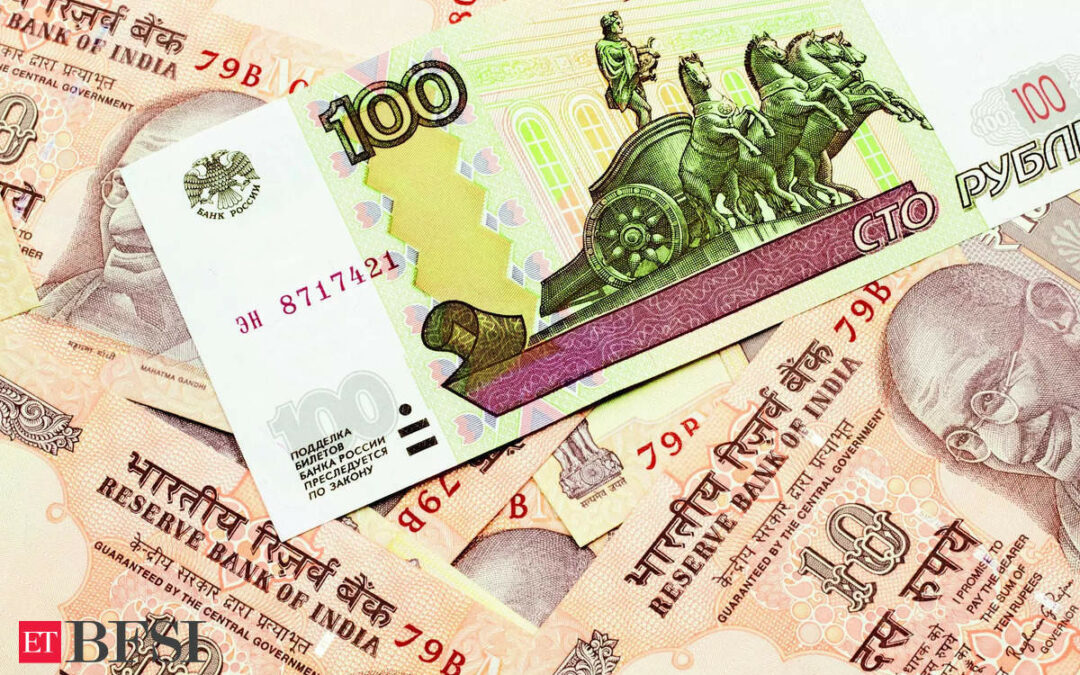Mumbai: Record foreign exchange reserves provide New Delhi with a formidable protective buffer against ownership swings in sovereign security holdings by Russian entities, for which the Reserve Bank of India (RBI) had facilitated a specific type of investment route.
Investments of some Russian funds in select securities that were permitted in a specific way are said to have reduced over a period of time indicating that funds are moving out of such securities, mostly short-term Treasury Bills, said market traders.
“There has been a decline in some of the short-term security investments from balances in Special Vostro Accounts, but the impact has barely been felt and provides no issues for the RBI from a currency or liquidity angle,” said a treasury executive at a bank on condition of anonymity.
The holding by investors in the’others’ category of 14-day T-bills has fallen to ₹442 crore as of March 29, 2024, from ₹2,614 crore as of October 28, 2022. Market participants said that this could be a category where some portion of the funds generated by the sale of Russian goods could have been parked because of a provision that was created in 2022. “It (RBI) had opened up a G-sec investment route for the surplus balances in the Special Vostro Accounts. The route was not through the Negotiated Dealing System – Order Matching (NDS-OM) platform but through other kinds of securities,” a source aware of the development said.”The investments that occurred in government securities through the new route were not as large as were being made out to be and the RBI has enough firepower in terms of reserves to handle any reduction in those balances,” the source said.
An email sent to the RBI seeking comment on the matter did not receive a response by the time of publication. As of May 17, the RBI’s foreign exchange reserves were at an all-time high of $648.70 billion. In 2023, the rupee depreciated 0.7% versus the US dollar, while so far in 2024, the Indian currency has weakened 0.2% versus the greenback.
After the outbreak of the Ukraine war in February 2022, the trade between Russia and India increased sharply, with New Delhi’s purchases of discounted oil from sanctions-hit Moscow contributing to the rise. Reliance Industries recently signed a deal to buy oil from Russia’s Rosneft paying roubles, reported Reuters.
In April, Sberbank’s executive board deputy chairman Anatoly Popov told ET that volumes in rupee-rouble settled trades had climbed seven times in 2023 versus 2022.
Special Plan
In July 2022, the RBI had put in place an additional arrangement for invoicing, payment and settlement of exports and imports in rupees. The step, which was taken to support the increasing interest of the global trading community in rupees, involved the opening of Special rupee Vostro accounts to facilitate transactions. The RBI’s notification said that the surplus balances in the Vostro accounts could be used for investment in the government’s treasury bills (T-bills), or other government securities in accordance with regulatory guidelines and limits.
The numerous types of government securities include dated securities – which are those that are issued with a maturity of more than a year, various types of T-Bills, cash management bills and securities issued under the Market Stabilisation Scheme (MSS) among others.
Regular dated securities and three types of T-bills – the 91-day T-bill, the 182-day T-bill and the 364-day T-bill – are instruments traded on the RBI’s NDS-OM platform. The government has not issued cash management bills or MSS securities for a few years now.
There is another kind of T-bill – the 14-day intermediate T-bills, which unlike the other three, are non-marketable. These T-bills are largely used by state governments to deploy funds. However, apart from state governments, there is another category – the ‘others’ category – which holds 14-day T-bills.
“We cannot say specifically about a country or any particular entity investing in government securities. It is allowed through the FPI route, and it can happen through the FPI route. It is allowed through the special Vostro account route,” RBI Deputy Governor T Rabi Sankar had said in August 2023, adding that buying instruments within the system should not have any significant liquidity impact.










